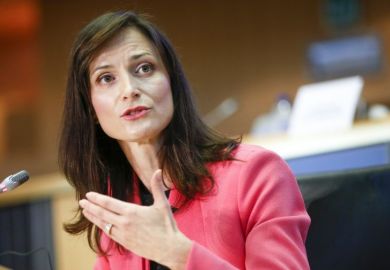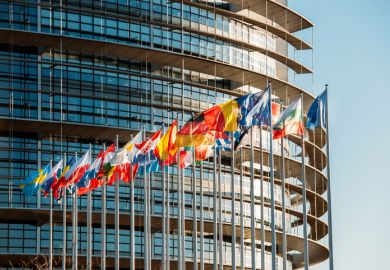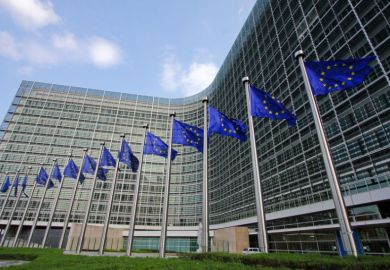An alliance funded by the European Universities Initiative is starting to make moves towards a more formal merger but still faces formidable regulatory barriers.
The 41 networks envisioned as “European universities” by French president Emmanuel Macron to rekindle continental cohesion have long warned that lack of funding and the difficulty of integrating national-based systems were major challenges to further integration.
But now the European University of Technology, which brings together providers in eight countries, has signed an agreement to speed up moves towards becoming a single institution, and has asked a lawyer to present a buffet of legal identities for the unified institution.
They plan to take these options to their respective ministries responsible for higher education in early 2022, with the aim of settling on a suitable legal identity with officials by the end of the year.
“The eight presidents and rectors agreed that they want to go faster than scheduled on the merging process,” said Pierre Koch, president of the University of Technology of Troyes, one of the eight institutions. “We said very explicitly that we were aiming to build an integrated university, not just a network but to join together, and at some point, we all want our national universities to become the local campus of the European University; not all alliances want to do this.”
If the ministries involved can agree on a suitable legal identity for the EUT, Dr Koch said the newly created body could then “define new rules which the eight member universities could use instead of the national rules”, such as those governing student mobility.
Like other EUI alliances, the EUT has set up coordination committees to align its member institutions’ work, such as on research and communication. All the alliances are supposed to promote “European values and identity” and each focuses on a different strength, such as fine arts, well-being or the seas.
But while creating a shared legal umbrella is possible, replacing eight national entities with something singular and supranational was very different, said Thomas Estermann, director of governance, funding and public policy development at the European University Association.
“The legal question is only the formal question. The practical questions, if you think beyond that, are far more complex,” he said, giving the reconciliation of national labour regulations as an example of a trickier cross-border issue to overcome. “Many people think that once you have a legal construction, you can solve those issues, but that is only part of the story.”
Dr Koch gave the European University Institute, an institution created from scratch by an intergovernmental treaty and which sits above national regulators, as a possible template. But Mr Estermann was sceptical: “That is something very different from taking existing universities and creating something supranational with that. That is the huge challenge. I can’t see a merger coming up because there are too many institutions.
“Creating a legal structure is something that most institutions would be able to do, but making changes that transfer core operations, substantial budget or governance, and decision-making structures to another entity would require involvement of the relevant ministries.”
The European Commission’s strategy for universities, due to be published in January, is set to include plans for a statute that would ease cross-border working. Whatever this provides for, the EUT alliance seems keen to press ahead fast.
“The idea would be to use this very special moment, when France is having the presidency of the EU for the coming six months, to give some political visibility to our initiative,” Dr Koch said.
Register to continue
Why register?
- Registration is free and only takes a moment
- Once registered, you can read 3 articles a month
- Sign up for our newsletter
Subscribe
Or subscribe for unlimited access to:
- Unlimited access to news, views, insights & reviews
- Digital editions
- Digital access to THE’s university and college rankings analysis
Already registered or a current subscriber?








